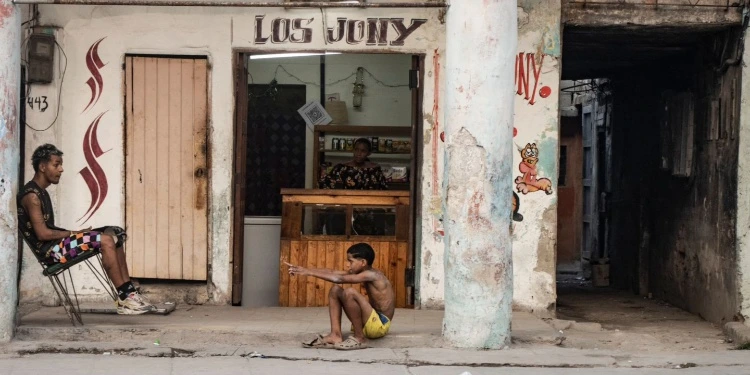SLP, Mexico.- With the system electroenergetic collapsed, higher inflation and fuel shortages, and the constant decline in tourism, the economic outlook on the Island for 2025 is critical.
Although for the year that the Cuban regime has just begun will implement some measures that seek to mitigate the unfortunate economic crisis in the country, as announced by the Prime Minister of CubaManuel Marrero Cruz, this year would be no different from the previous ones.
The changes imply an increase in the partial dollarization of the economy, to raise foreign currency, but they also contemplate the imposition of a exchange rate “flexible” for the dollar and the euro, which will “adjust” when the supply and demand of currencies in the formal market change.
To raise foreign currency, they also promote an increase in Internet rates, where a consumption limit will be established, and those who exceed it will have to pay for more connection.
However, none of these changes or others announced are significant.
In the program CubaNet “Thinking Cuba”economist Joel Brito, executive director of the International Group for Corporate Social Responsibility in Cuba, stated that there is no intermediate solution for the crisis.
Completely exit the regime
In conversation with Hernán Alberro and Pedro Acosta, the expert and trade unionist recognized that, given the current conditions, the only exit What the Cuban economy has is that the regime takes two paths: like Bashar al-Assad, going to Russia; or like Saddam Hussein, dying in a cage with a shot to the head.
“The solution is to completely leave the regime in current conditions because that regime has destroyed everything in 62 years. And I really think he has little left,” he said.
From the political, economic and social point of view, political, economic, social, the panorama is disastrous, but it is also disastrous from the point of view ideological: “When you see that 850,000 Cubans have left Cuba, when you see that there are 1,600,000 retirees on the Island, that what they receive is 4 dollars in retirement, and the basic family basket costs more than 100 dollars, that indicates that nothing worked.
The Cuban failure is also demonstrated by the debacle of the sugar industry, since Cuba needs approximately 600 thousand tons of sugar for national consumption and last year it produced 380 thousand tons. Of the 165 centers they had, in 2024 Less than 56 worked, a tiny figure for a country that prided itself on being one of the largest sugar producers.
Although last year the regime blamed natural phenomena for the worsening of the situation, the responsibility falls on Cuban political mismanagement.
“If we continue and review economic figures for the year 2024, we can see that it was not just natural disasters that have caused all the problems that Cuba has. The problem is that when you have a country that does not have economic reserves and any natural disaster occurs, logically this has a greater implication on the population. And it goes from lack of food, the lack of medicine, the deterioration of the housing stock, public transportation,” Brito said.
GAESA’s business
The Armed Forces, through monopoly GAESA’s commercial business has continued to capitalize on dollars, for which they have implemented more measures to be able to compete with the currency exchange in the informal market. But for Cubans it becomes unsustainable to be able to pay too much money for a few dollars.
“The business management group of the Armed Forces has really dedicated itself to all this type of business and it is a separate economy. It is an economy like when we talked about the commander’s famous reserves. He commander He went anywhere and donated to 30 buses. The owner of Cuba could do what he wanted,” he said.
Nothing has changed much since Raúl Castro came to power and was later replaced by Miguel Díaz-Canel: “Now they are not the commander’s reserves, they are the reserves of GAESA and Raúl Castro. That is to say, the path has remained the same.”
A way out?
Brito considered that a new administration in the United States could adopt a package of measures that could be applied to exert economic pressure that would lead to a total collapse within the Island.
Closing remittances, imposing sanctions on any ship that enters the Island to deliver oil, the regime would collapse.
Even, he stated, although Mexico has practically become Cuba’s number one oil supplier, pressure could be exerted on that country from the United States.
“You can apply it from January 21 and you can apply it progressively as you need it. Logically, that will put strong pressure on the Cuban regime.”
Firstly, he mentioned the measure of keeping Cuba on the list of terrorist countries, which establishes stronger pressure on the Cuban Government from the point of view of the international financial system.
Secondly, with the help of allies of the United States in Europe, could stop investing in the Island and not send tourists there.
However, according to Brito, the greatest impact for a change would be the population. “What is really going to have a short, medium or long-term impact on the island is that the population is already fed up. I don’t know how long the population can continue to withstand pressure.”














